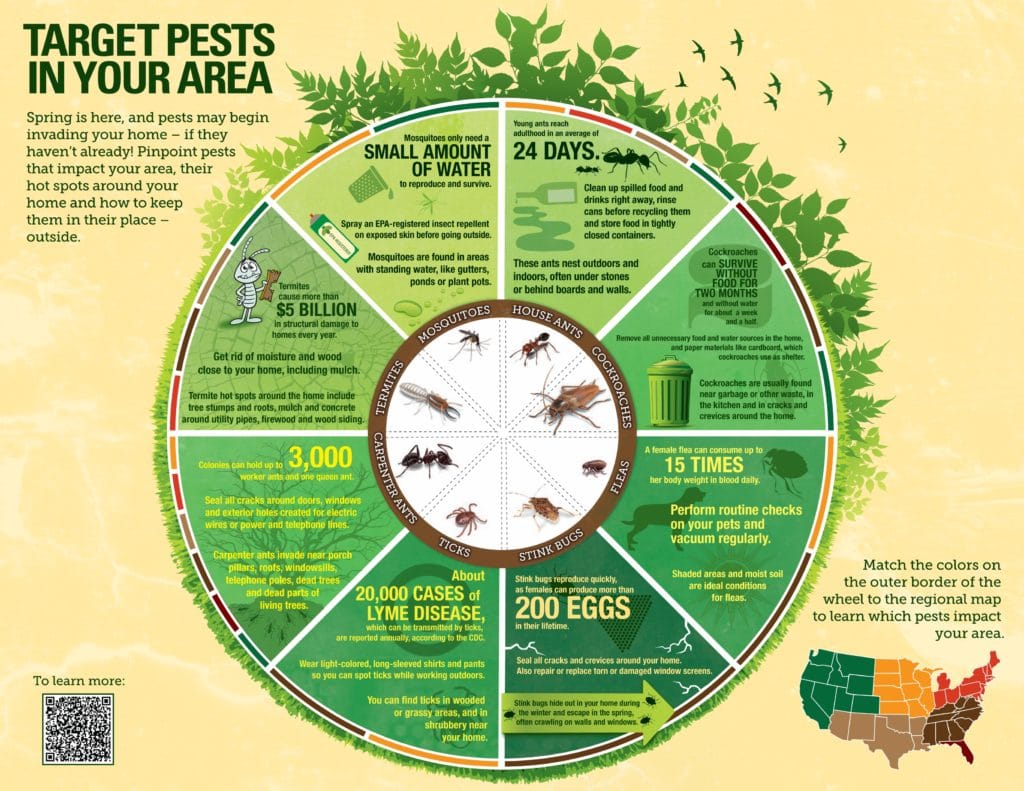Pest-Proofing Your Garden: Tips For Maintaining Outside Insects At Bay
Pest-Proofing Your Garden: Tips For Maintaining Outside Insects At Bay
Blog Article
Created By-Vang Hartvig
Picture your garden as a shelter, an area of tranquility and charm. However, the presence of outside pests can swiftly disrupt this idyllic image. Suppose there were straightforward yet effective methods to maintain these undesirable site visitors at bay and protect your yard oasis? By following most effective termite treatment of practical tips and implementing all-natural strategies, you can create an unified outdoor room where your plants can grow undisturbed.
Natural Parasite Deterrents
To maintain parasites away from your garden normally, plant aromatic herbs like mint and lavender. These great smelling plants not just include charm to your garden however likewise serve as reliable pest deterrents. click for info like mosquitoes, flies, and even some garden-damaging pests are repelled by the solid scents sent out by these natural herbs. Simply putting them strategically around your yard can aid develop a natural obstacle versus undesirable bugs.
Along with mint and lavender, think about growing other herbs like rosemary, basil, and lemongrass to further enhance your garden's pest-proofing abilities. These herbs not only function as all-natural repellents however likewise have actually the included benefit of serving in cooking or crafting homemade remedies.
Strategic Plant Placement
Think about the format of your yard and the kinds of plants you need to purposefully place them for optimum pest-proofing effectiveness.
Beginning by grouping plants with similar resistance to bugs with each other. By doing this, you can create an all-natural barrier that deters pests from spreading throughout your garden.
Furthermore, placing pest-repelling plants like marigolds, lavender, or mint near more susceptible plants can help protect them. Tall plants, such as sunflowers or corn, can work as a shield for shorter plants versus parasites like bunnies or ground-dwelling insects.
Bear in mind to leave enough room in between plants to enhance air circulation and decrease the danger of diseases that pests may lug.
Furthermore, think about growing strong-smelling natural herbs like rosemary or basil near susceptible plants to puzzle bugs' senses and make it harder for them to situate their targets.
Reliable Parasite Control Techniques
For combating yard bugs properly, implementing a multi-faceted bug control method is crucial. Beginning by encouraging natural predators like birds, ladybugs, and praying mantises to help keep pest populaces in check. Introducing plants that attract these useful insects can help in parasite control. Furthermore, practicing great garden hygiene by removing particles and weeds where parasites might hide can make your garden much less welcoming to undesirable visitors.
Think about using physical obstacles such as row cover materials or netting to shield susceptible plants from insects like caterpillars and birds. Using natural chemicals like neem oil or insecticidal soap can likewise work versus specific bugs while being less dangerous to valuable pests and the environment. It's important to revolve your plants each season to avoid the accumulation of insect populations that target certain plants.
Regularly evaluate your plants for signs of insect damages so you can do something about it without delay. By integrating https://how-to-remove-mole-rat-di05161.blogvivi.com/27106088/how-termite-parasite-control-provider-can-save-you-money-in-the-long-run and remaining alert, you can effectively control yard bugs and enjoy a flourishing, pest-free garden.
Final thought
So, there you have it - with the right methods, you can maintain pesky outside insects away from your yard and help your plants flourish.
Did you understand that planting mint has been shown to drive away mosquitoes and other pests, reducing the need for hazardous pesticides by approximately 60%?
By incorporating all-natural deterrents and smart planting methods, you can create an attractive and pest-resistant yard sanctuary for you to delight in.
